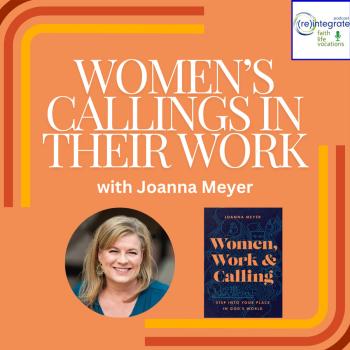 So, you are in a career other than pastor or missionary. How does your church make you feel about that? John Stott wrote,
So, you are in a career other than pastor or missionary. How does your church make you feel about that? John Stott wrote,
“We often give the impression that if a young Christian man is really keen for Christ he will undoubtedly become a foreign missionary, that if he is not quite as keen as that he will stay at home and become a pastor, that if he lacks the dedication to be a pastor, he will no doubt serve as a doctor or teacher, while those who end up in social work or the media or (worst of all) in politics are not far removed from serious backsliding.” (Christian Mission in the Modern World, 33-34).
In a book entitled How the Church Fails Businesspeople, John C. Knapp agrees. The large portion of North American churches have remained focused on their Sunday programs and are completely missing the boat.
“Membership and attendance are eroding in the United States and other Western countries, even as congregations stubbornly invest their hopes and resources in traditional Sunday programs. Church priorities continue to tilt heavily toward private faith and away from ministries that might equip believers for a robust public faith… In failing to bridge faith and work, the church has failed itself and society with far-reaching consequences.” (p. xiii).
Millennials Just Aren’t Interested in That
This is having a devastating effect on reaching a new generation with the Gospel. Millennials are not interested in joining an institution that has its own narrow agenda; they want to join a movement that purposes to change the world. Gabe Lyons sees the next generation of Christians rejecting the notion that ministry happens solely within the ministries of the local church.
“While some may be called to full-time religious work, (the “next Christians”) accept that many Christians should simply work to restore the needs right under their noses. They’ve grown tired of being regarded as second-class Christians and want to be empowered on mission right where they are.” (Gabe Lyons, The Next Christians: Seven Ways You Can Live the Gospel and Restore the World, p. 112)
Michael Frost and Alan Hirsch write,
“Because the missional church, by its very nature, exists organically within its host community, it has had to abandon Western Christianity’s dualistic worldview in favor of whole-of-life spirituality.” (The Shaping of Things to Come, p. 21)
Ignoring the Reformation by Failing to Understand and Respect Vocation
Dorothy Sayers, writing decades ago, believed that this is no small matter, saying,
“In nothing has the Church so lost Her hold on reality as in Her failure to understand and respect the secular vocation. She has allowed work and religion to become separate departments, and is astonished to find that, as result, the secular work of the world is turned to purely selfish and destructive ends, and that the greater part of the world’s intelligent workers have become irreligious, or at least, uninterested in religion.” (Dorothy Sayers, “Why Work?”)
This is contrary to the Reformers’ view of vocation. Gene Veith summed up Martin Luther’s position when he wrote,
“The priesthood of all believers did not make everyone into church workers; rather it turned every kind of work into a sacred calling.” (God at Work, p. 19).
What can be done to help church leaders acknowledge this glaring problem?
Image by www.audio-luci-store.it. Used with permission. Sourced via Flickr.
Stay in touch! Like (re)integrate on Facebook:













